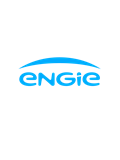
Summary
- Corporate and CSR Governance
- Ethics and respect for human rights
- Sustainable Procurement
- Green Finance and green bonds
- Green taxonomy
- Tax Policy
- IT and digital Responsibility
- Cyber security and personal data protection
- Influence and responsible lobbying
- Research and Innovation
Corporate and CSR Governance
Because the energy transition and digital transformation are revolutionizing today's world, ENGIE believes that its business model must adapt to these new challenges, shared with all stakeholders. ENGIE's Board of Directors defines the Group's business orientations and the Executive Committee implements the Group's strategy to meet tomorrow's energy challenges.
Find out more about ENGIE's Governance
The Corporate Social Responsibility (CSR) Department relies on a network of designated coordinators in the business units (GBU, GEMS (Global Energy Management & Sales) and Nuclear) and geographical entities (national and regional hubs). To engage employees as widely as possible on these subjects, the CSR Department uses a network of Chief Sustainability Officers (CSO) across the business lines and regional hubs
This governance implements the Group's CSR policy. This policy covers environmental, societal and governance issues, in particular the fight against climate change and the preservation of nature.
For climate issues, ENGIE relies on specific governance for climate issues, illustrated below.







